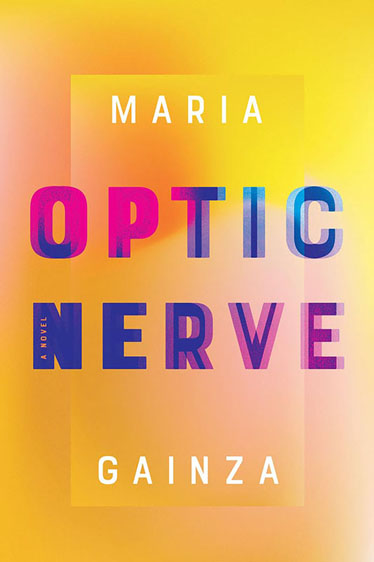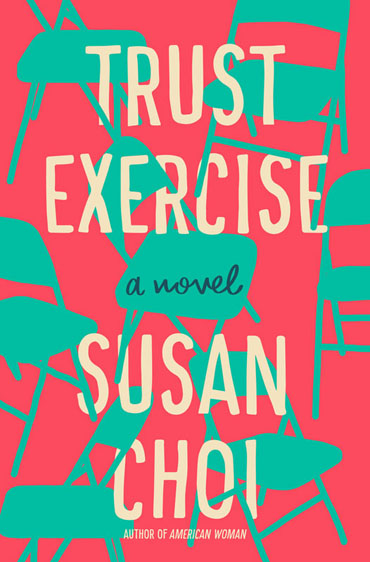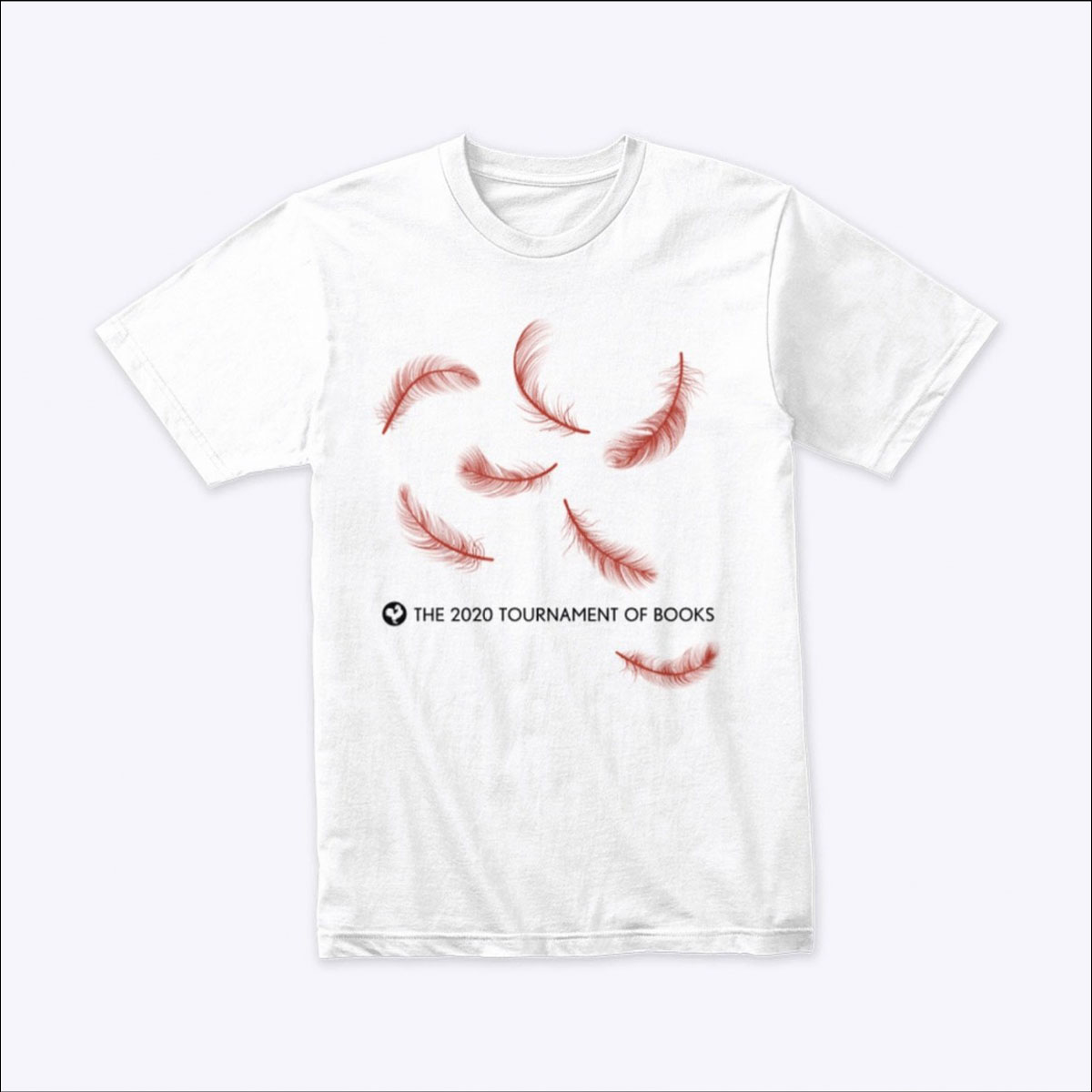Deena ElGenaidi: Having spent a year working at an art publication, where I was underpaid and undervalued, immersed in an overly pretentious world that I had little interest in, I was hesitant going into María Gainza’s Optic Nerve. I feared it would be more of the same—overeducated art majors over-glorifying works of little merit simply out of some need to praise the right people and build the right connections. I’d had enough of the art world, and picking up Optic Nerve, I worried that it would plunge me right back in, after months away.
But Optic Nerve surprised me, and though the novel did bring me back into a world I thought I had escaped, the art space, rather than being a source of anxiety and eye rolling, seemed beautiful once again. The narrator of Optic Nerve takes us through her life by taking us through the history of art and artists, and the fascinating lives those artists led. In many ways, it’s like we’re taking an art history course, only it’s one imbued with drama, intrigue, and a welcome personal narrative.
We learn about the narrator through the art she loves, and in this way, we begin to understand her life, her desires, and her motivations. For instance, she talks about El Greco, saying “one winter’s night, an icy wind began to blow through his paintings. The space inside them grew constricted, and his figures, as if to adapt to these new climes, hollowed themselves out and lengthened upward.” The narrator then goes on to describe the way people felt when looking at these paintings, only to immediately bring us into her life, on a plane, on her way to visit her older brother “for the first time in a decade.” As readers, we’re left to ascertain the connections between these stories and these moments in the narrator’s life, and the stories themselves illuminate the narrator’s inner self and desires.
This unique method of storytelling is not easy to pull off, but Optic Nerve does so in a seemingly effortless manner, with beautiful and vivid language throughout. The narrator’s life appears in bits and pieces, and as readers, we are following a windy path of tales and tangents to a heartbreaking end.
The novel’s art world is so different from the one I knew at my unnamed art publication that I found myself wondering if maybe I could find something of worth in the art world, if I’m just able to wade past the toxicity and self-importance that many in that world project. Through this story, we are reminded that art is merely a reflection of life, and we are always looking at objects and works in relation to ourselves and our lives. Though at times, the story can drag on as the narrator avoids telling us anything too directly, Optic Nerve as a whole is beautiful in its content as well as its prose.
On another end of the spectrum is Susan Choi’s Trust Exercise, a novel that on its surface contains everything that interests me: teen drama, high school trysts, lies, deceit. In my downtime, I’m often watching teen TV dramas, from Gossip Girl, to Riverdale, to the Chilling Adventures of Sabrina, and more. So when I read the description for Trust Exercise, I couldn’t wait to dive in.
As a whole, this is both a smart and deceptive book. We eventually learn that the story we spend much of the novel reading is not entirely true, as the timeline jumps forward and around. The novel impresses with its intricately plotted arrangement and shows us that the real trust exercise is between narrator and reader.
In the end, though, I was left wanting more. While the plot, on its surface, is incredibly intelligent and thrilling, the narration, while at times beautiful, was also somewhat dry and managed to distance me from the characters and story so that I couldn’t really get into the intrigue. I wanted to delve into the drama of Sarah and David, but their voices felt so distant that I didn’t always know—or care—what was at stake. At one point, the narrator says, “At the sight of that blush, Sarah’s own chest seems to swell and implode. Heartbreak doesn’t flow through the heart but along that frail shallow canal of the sternum.” While the language here is incredible, it doesn’t feel like the voice of the characters, and so it leaves me feeling far away from Sarah, as though an unnamed observer is dramatizing her feelings for us. I wanted more—something to make me root for or against these characters.
Although Trust Exercise exhibited strong and well-crafted prose, it was the choice of narrative tone that left me leaning toward Optic Nerve as the winner. Though less plot-heavy than Trust Exercise, Optic Nerve captured my attention more, with a sense of seamless and not too heavy-handed narration.
From our match sponsor: If you are stuck at home, Quail Ridge Books is happy to offer you FREE SHIPPING on books, and if you order a book from the Tournament, you get a free Rooster sticker! Some of our very favorite books from 2019 that did not make the Tournament: Prairie Fever by Michael Parker (don’t sleep on Prairie Fever, y’all), The Book of X by Sarah Rose Etter, The Nickel Boys by Colson Whitehead, Deep River by Karl Marlantes, The Deeper the Water the Uglier the Fish by Katya Apekina, Wyoming by J.P. Gritton, Meander Belt by M. Randal O’Wain, The Magnetic Girl by Jessica Handler, gods with a little g by Tupelo Hassman, The Gulf by Belle Boggs. So many books!
Match Commentary
By Kevin Guilfoile & John Warner
Kevin Guilfoile: Hey John, speaking of feeling distanced from the characters, how is your self-quarantine going? Things are all good here in the Guilfoile house, with my wife and kids all working/schooling from home, which used to be my thing, and so I need another thing, which is why I’ve started making bread. I just made some of Paul Hollywood’s ciabatta, which tastes great, but the dough is sticky and I haven’t nailed the shaping part down so they all look like giant deformed penises. But still delicious. Anyway, the Tournament of Books is pretty much the last competitive event still going in the world. And I have to say I am especially glad for it, and for books, and for the company of you and everyone in the Commentariat. My platonic love to all of you in the time of COVID-19.
John Warner: Like you, I’ve been working from home for a lot of years, but unlike you I don’t have kids, so aside from the constant feeling of dread about what’s to come punctuated by periods of rage over our commander-in-chief, my life is relatively unchanged. Early on, I was among those saying how I would handle the additional time at home by upping my reading, but if anything I’m reading less than usual because the hum of anxiety seems to break through whatever quiet time I seek. Hopefully this passes. Having the Tournament go on with as much verve as always has been a little bit of light each day.
Kevin: I think Judge ElGenaidi does a lovely job of describing the pleasures of Optic Nerve, which I recognize intellectually but which remain just out of my reach emotionally. I think this is exactly right:
In many ways, it’s like we’re taking an art history course, only it’s one imbued with drama, intrigue, and a welcome personal narrative…Through this story, we are reminded that art is merely a reflection of life, and we are always looking at objects and works in relation to ourselves and our lives.
I like Trust Exercise so much, though. I was wounded a bit by its loss here.
John: Consider me deeply wounded here. I am impressed with Optic Nerve, but Trust Exercise is one of those books that gave me a little buzzing sensation at the top of my head that signals a kind of deep connection to the text. I would say it’s one of my favorite novels of last year and Susan Choi is one of my favorite working novelists, so it’s hard to see Trust Exercise out of the tourney. I’m hoping that you’re about to give me some good Zombie news.
Kevin: Cross your fingers. As you know, this is the final match before the Zombie Round, and Trust Exercise is the last novel with a chance at a second life. I put on my green visor and turn the crank on the old adding machine, and it becomes clear that Trust Exercise is going to come up short. Darn it.
John: Rats.
Kevin: But this means we have our Zombies! Tomorrow, Saudade will take on a newly nimble Normal People. Then on Monday, Optic Nerve will meet the Lost Children Archive (of the Corn). Winners will advance to Tuesday’s championship.
We are both cursed and blessed to be living in interesting times, John.
John: Before we go, on top of everything else, I’m worried about the fate of our independent bookstores as our economy contracts and we may be looking at extended periods of sheltering in place. This may be good for the reading of books, but it gets in the way of shopping for books. Fortunately, many indies are adapting, even as we speak, even embracing same-day, door-to-door delivery. I took advantage of this offer at my local indie, Itinerant Literate Bookshop in North Charleston, SC. In a bit of a panic, I ordered up a good dozen titles and had them hand delivered to my home by 5 p.m. that day.
Another alternative is to order through the newly operational Bookshop.org, which offers online ordering and easy shipping of books to anywhere in the country, fulfilled through indie stores with indies getting a portion of all proceeds. I made a little affiliate shop that tracks the last month of my Biblioracle recommendations, as well as my favorites of the year thus far. Those favorites are what I’ll be lobbying for when it comes time for next year’s tourney.
Perhaps in gesture of solidarity, if nothing else, the Commentariat can give a shoutout and link to their local bookstore. Maybe we can do a little collective good.
Kevin: Fantastic idea. My local bookstore is Anderson’s. They are closed now, but they are accepting online orders and preorders. Also want to give a shout out to The Bookstore in Glen Ellyn. They are a little farther away from me, but they are awesome folks and huge supporters of the Rooster and if you want to support them back you can send someone you love in Chicago’s western suburbs a gift card.
As John suggests, if you want to give a little love to your local indie, please do it up in the Commentari-dome.
New 2020 Tournament of Books merch is now available at the TMN Store. As a reminder, Sustaining Members receive 50 percent off everything in our store. To find out why we’re asking for your support and how you can become a Sustaining Member, please visit our Membership page. Thank you.
Welcome to the Commentariat
Population: You
To keep our comments section as inclusive as possible for the book-loving public, please follow the guidelines below. We reserve the right to delete inappropriate or abusive comments, such as ad hominem attacks. We ban users who repeatedly post inappropriate comments.
- Criticize ideas, not people. Divisiveness can be a result of debates over things we truly care about; err on the side of being generous. Let’s talk and debate and gnash our book-chewing teeth with love and respect for the Rooster community, judges, authors, commentators, and commenters alike.
- If you’re uninterested in a line of discussion from an individual user, you can privately block them within Disqus to hide their comments (though they’ll still see your posts).
- While it’s not required, you can use the Disqus
tag to hide book details that may spoil the reading experience for others, e.g., “ Dumbledore dies .” - We all feel passionately about fiction, but “you’re an idiot if you loved/hated this book that I hated/loved” isn't an argument—it’s just rude. Take a breath.




